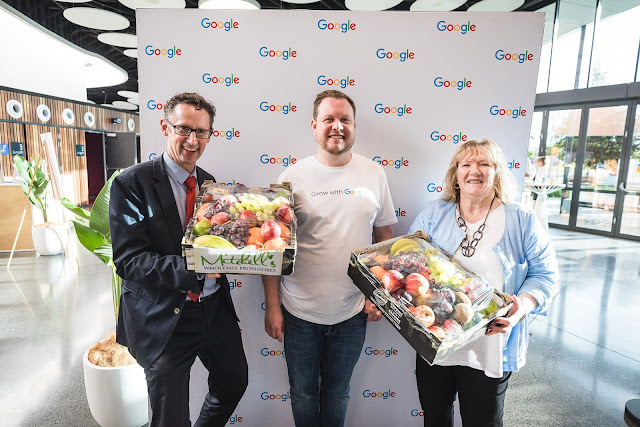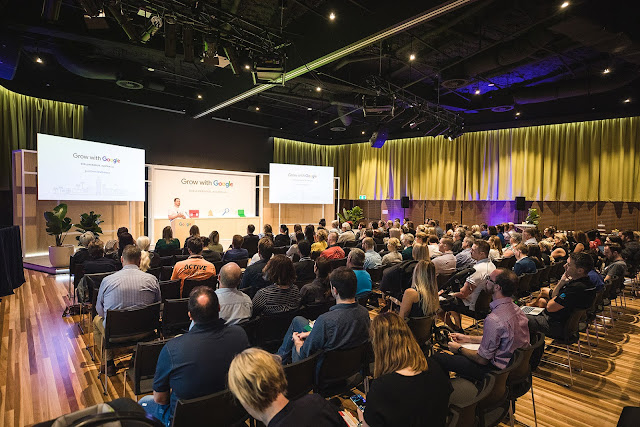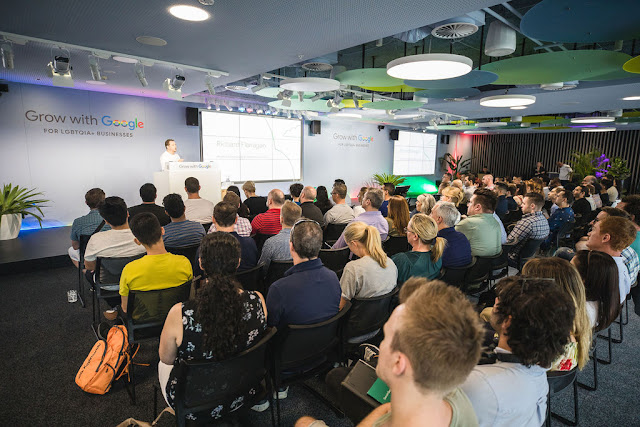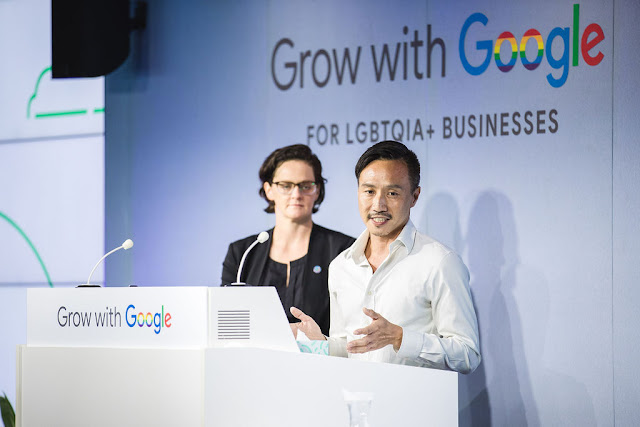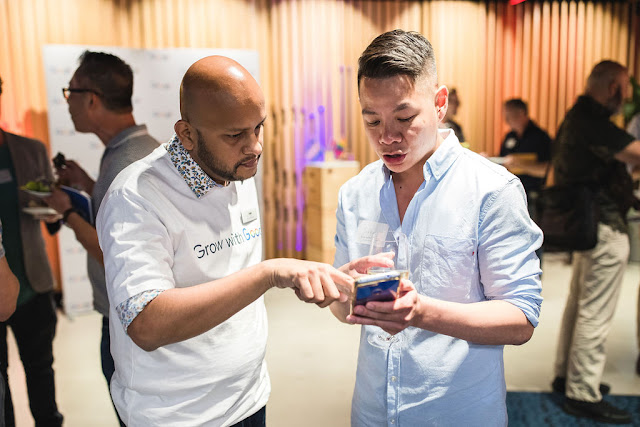The spread of COVID-19 has had a devastating impact on the health, jobs and lives of millions of Australians and people around the world. We’ve all had to make fundamental changes to the way we live and work, and businesses everywhere have been impacted. Yet we’ve also heard inspiring stories of health care workers on the front lines, businesses providing vital resources and support, and families and communities being there for one another—showing us that if everyone plays their part, we can and will get through this together.
The “Stay home, Save lives” Doodle on the Google Australia homepage 3-5 April
Overcoming a crisis of this scale will take a sustained effort, and we want to do
everything we can to help. Since the virus first began to spread, our focus at Google has been on making sure people have the
information and tools they need. But we know there’s much more work ahead.
Today, we’re sharing the actions we’re taking to support Australia both in the ongoing short-term response to the virus and in the longer-term, concentrating on three priorities:
- Promoting authoritative and reliable information;
- Supporting education and learning; and
- Contributing to business continuity and economic recovery.
We’re working closely with government, business, the health and education sectors, not-for-profits and community organisations to ensure people can get help when they need it most. We want to build on our existing partnerships and programs to support Australians, while responding to the urgent challenges we now face.
Promoting authoritative and reliable information sources It's crucial that people have access to health information they can trust online, so they can make the right decisions to protect themselves and those around them from COVID-19. We've surfaced the
latest updates and health advice from government and health authorities, promoted awareness campaigns, shared
travel advisories, and provided regular updates on the
Search trends we are seeing as Australians look for help and information.
We’ve also provided ads credits to the Australian Government to help communicate information to the public, while the Department of Health’s
Coronavirus Australia App, built on Google Cloud, provides real-time information and advice about the fast-changing pandemic.
To ensure Australians have access to all the latest information in one spot, we’ve launched a local
COVID microsite featuring the latest updates and health resources. And we’re providing
Community Mobility Reports that analyse aggregate, anonymised location history and provide local insights on the impact of social distancing.
Alongside our work to promote authoritative sources, we’ve stepped up our efforts to curb misinformation spreading on Google, YouTube or through apps on the Play Store. We have already taken down thousands of YouTube videos featuring dangerous or misleading coronavirus information since early February 2020, and continue to remove videos that promote medically unproven methods to prevent coronavirus in place of seeking medical treatment.
We're building on these efforts in the months ahead to ensure people have access to
reliable information. In Australia, we’re supporting the
Australian Science Media Centre to
connect fact-checkers and reporters to expert individuals and organisations around the COVID-19 crisis. We’re also supporting the
Walkley Foundation as it provides crucial training and resources for journalists working remotely, and expanding our global investment in fact checking organisation
First Draft to strengthen efforts to combat misinformation.
Supporting education and learning across Australia Millions of Australian students are out of school because of restrictions on movement and gatherings. That’s putting pressure on families, schools and the incredible teachers who foster our children’s passion for learning.
To help teachers get the support they need to teach remotely, we’ve made tools like Hangouts Meet and Google Classroom
available for free, provided training and tips through both
Google and
YouTube (and YouTube creators are getting on board too -- check out the latest tips from
Eddie Woo), and launched
Teach from Home with UNESCO as a central hub for teachers around the world.
We’ve also built a remote work hub on the
Grow with Google Australia site to help people work, teach and learn from anywhere, along with a
distance learning website that includes training materials and a new
YouTube Learning Hub to help schools, teachers, parents and students. And we launched a local
#StayHome #WithMe campaign on YouTube to help people feel more connected, entertained and informed during social distancing.
All schools in Australia have access to expedited
G Suite for Education domain sign-ups (free) and we are working with education departments around the country to pre-approve school domains to help educators and learners continue their teaching and learning remotely and explore further opportunities for support.
We all know the power of great teachers and inspiring lessons, and we hope these steps will help our kids continue to learn from home, and return energised when school returns.
Contributing to business continuity and economic recovery Small businesses are the heart of our economy and communities, from retailers to restaurants, and they've been among the hit hardest by the outbreak.
Google recently announced an
$800 million commitment to support small businesses, health organisations and governments with access to finance, ad credits and grants to help meet the costs of the virus (small businesses can find more information
here).
At the same time, we will be expanding our programs to train local small businesses in digital skills, provide them with cloud-based tools, and enable their employees to work remotely. We have
launched a
website to help Aussie businesses navigate through the uncertainty of COVID-19 and are working with business organisations such as the
Business Council of Australia,
ACCI and
COSBOA to share resources that may be of assistance.
We have made the premium version of our video conferencing software
Meet free to all of our Australian and global G Suite customers until
September 2020, to allow large meetings, livestreams and meeting recordings.
More than 8,000 Australian not-for-profits enrolled in our Google for Nonprofits program also have access to these facilities. And we will be working with governments and NGOs to support relief initiatives and build economic resilience in the community, as well as matching our employees’ individual donations to charitable organisations.
Upholding our responsibility COVID-19 puts intense demands on us all, and we’re determined to uphold our responsibility in this unprecedented time: to enable access to trusted information, support remote learning, back small businesses, and more. These initiatives are just the start. We continue working to help Australians deal with COVID-19 and shape a stronger future.
Posted by Mel Silva, Managing Director, Google Australia 

